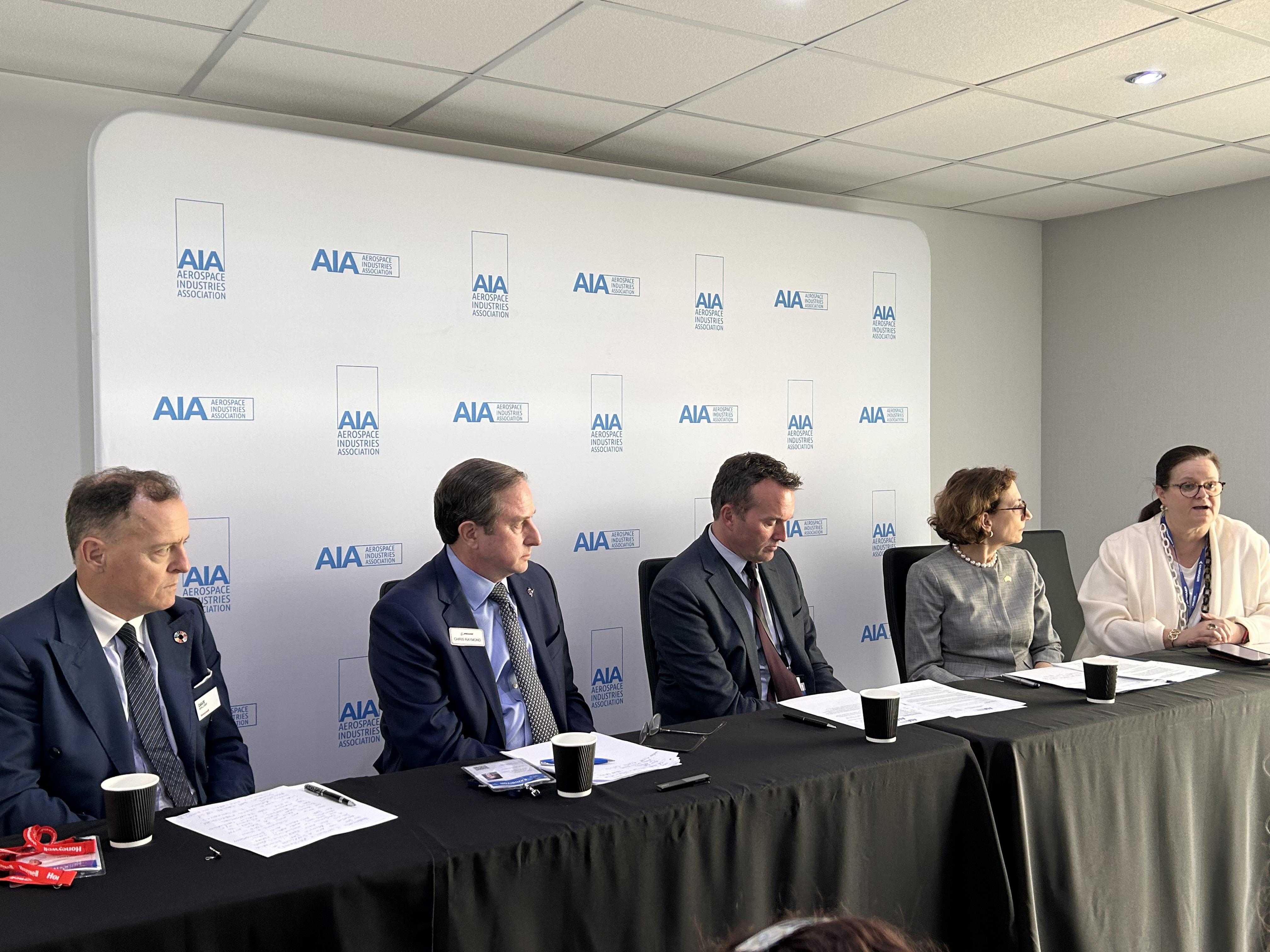
Speaking on a SAF panel at the Paris Air Show are, from left, Honeywell Aerospace VP and general manager for urban air mobility and uncrewed aerial systems David Shilliday; Boeing SVP and chief sustainability officer Chris Raymond; Aerospace Industries Association president and CEO Eric Fanning; acting FAA administrator Polly Trottenberg; and American Airlines head of regulatory and international affairs Molly Wilkinson.
PARIS–American Airlines, concerned that US tax incentives supporting the development of sustainable aviation fuels (SAF) are set to expire in two years, is calling for an extension of at least 10 years to match the long-term financing needed to support SAF development.
Speaking on a panel at the Paris Air Show, American Airlines head of regulatory and international affairs Molly Wilkinson said one of the “most significant advancements” for SAF was the blenders’ tax credit, which was passed in August 2022. This tax break incentivizes US SAF production more favorably than biodiesel and ethanol.
However, the tax credit expires in two years and Wilkinson sees challenges in securing an extension.
“When blenders tax credit was passed, it was passed by a Democrat-led House and Senate. And so there will be a bit more of a challenge, because this Congress is a Republican House in a Democratic Senate,” she said.
Wilkinson believes the Republicans could be encouraged to support the extension, because SAF production will help boost US energy independence.
She also called for a 10-15-year extension because of the long investment timelines needed for SAF production. “It's really hard for them [SAF producers] to say, well, I want a loan for 10 or 15 years, but I'm only going to get a tax break for two or four years,” she said.
The panel made comparisons between the US incentives-based approach to SAF and the EU’s focus on mandates. Wilkinson believes the EU mandates give a lot of power to SAF producers, which could ultimately result in higher costs for airlines and passengers.
Meanwhile, efforts are continuing to get commercial aircraft certified to fly with 100% SAF. Boeing SVP and chief sustainability officer Chris Raymond said this will involve extensive component testing with various SAF chemistries, so he declined to give any potential timelines.
“We don't think there's big changes that have to be overcome, but we have to do the work,” he said. “I'd say we're more at the ‘scope the problem’ phase.”
